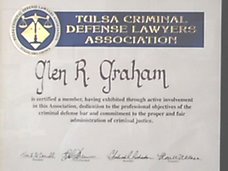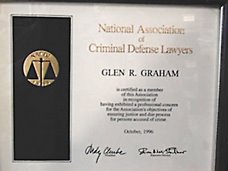I have previously written about the Biblical authority in opposition to the use of hearsay evidence and the right to confrontation and the right against self-incrimination --- see my post here: HERE
Scott Henson’s blog cited HERE discusses Biblical authority in opposition to “snitching” or his interpretation: and the comments following his post are excellant!!!
Mosaic Law required that "One witness shall not rise up against a man for any iniquity, or for any sin, in any sin that he sinneth: at the mouth of two witnesses, or at the mouth of three witnesses, shall the matter be established." (Deuteronomy 19:15) Christ formally affirmed this doctrine as part of the New Testament covenant in Matthew 18: 15-16, as the Apostle Paul did in Second Corinthians.He also refers to the Synod of Elvira, an important provincial religious council in Spain that occurred sometime during the first decade of the Fourth Century, prior to Emperor Constantine's conversion and Christianity's formal, public acceptance in the Roman Empire. This was a period when Christians were harshly persecuted by the Romans, wherein he cited the Christian version of the modern "stop snitching" code (here's the only web version I can find: Scroll down to see #73):
http://faculty.cua.edu/pennington/Canon%20Law/ElviraCanons.html
"A Christian who denounces someone who is then ostracized or put to death may not commune even as death approaches. If the case was less severe, he or she may commune in less than five years. If the informer was a catechumen, he or she may be baptized after five years."
Refusing communion was the most terrible punishment early Christians could think of - far more awful, in the long run, than the death penalty for the unsaved soul.The reference to a Christian denouncing someone in the context of the Elvira Synod meant ratting out a fellow Christian to the Roman authorities, which quite possibly could get them killed. In that case, their excommunication was permanent.These Christians had read most of the same books of the Bible we do now (they probably had more, actually), and they knew the admonition to "render unto Caesar what is Caesar's." But the Elvira Synod did not consider their truthful testimony about fellow Christians something that belonged to Caesar. Instead, snitching on fellow Christians was declared an offense against God by which a Christian risked everything, literally their eternal soul.
Yours in the Defense of Fellow Human Beings,
Glen R. Graham, Attorney at Law, Tulsa, Oklahoma
http://www.glenrgraham.com/
Biblical Authority in Opposition to Snitching
Subscribe to:
Post Comments (Atom)






No comments:
Post a Comment